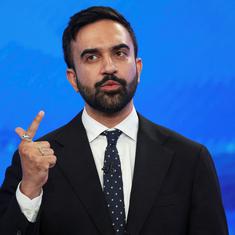So what is Subramanian’s blueprint to take India forward? Some recent pieces by the author of Eclipse: Living in the Shadow of China’s Economic Dominance could give us a clue.
Disappointing Budget
Finance Minister Arun Jaitley’s first Budget didn’t exactly set the world on fire. In fact it was the first time Modi’s supporters starting to express unhappiness with the government’s policy direction, although few blamed the PM himself. Subramanian was perhaps the most prominent of this lot.
“In substance, this was a budget prepared by incumbent bureaucrats, not incoming politicians,” Subramanian wrote. “It represented continuity – which surprisingly was endorsed by much of the post-Budget commentary – when the need of the hour was change.”
He critiqued the government for sticking to the previous administration’s unrealistic targets and accounting, arguing that some of the figures were implausible enough to demand cynicism. He also said there is too much complacency in India’s fiscal policy, driven by a basic misunderstanding: “The Budget and its analysts alike have focused on the medium-term path of fiscal adjustment. This path is important but not critical. On fiscal policy, India has a flow problem, not a stock problem.”
While, almost presciently, he called on commentators to give the government the benefit of the doubt for the moment, Subramanian did point out that actions and timelines on the key issues of taxation and subsidies were missing.
Report card
At the end of June, about a month-and-a-half into Modi’s prime ministership, Subramanian offered up a provisional report card based on measures that had been taken until then.
*Inflation: ‘A’ – because of a moderation in minimum support prices and liberalising movements of fruits and vegetables.
*Railway Tariffs: ‘A-’ – a (substantially) insufficient tariff increase, but a “shrewd political calculation”.
*Manufacturing: ‘C’ – extension of excise concession to auto manufacturers despite few reasons to do so.
*Subsidies: ‘D’ – increase of sugar subsidies and imposition of import duties aimed primarily at appeasing the sugar lobby.
WTO position
Subramanian agreed with the Modi government’s classification of the Bali Package as problematic for India, considering its need to provide food security, but wrote a column arguing that the obstructionist approach India took would have serious deleterious effects.
“If India succeeds in its opposition, and the Bali deal collapses, the blow to an already weak WTO would be significant and India would bear much of the blame,” Subramanian wrote. “The costs of a weak and delegitimised multilateral trade system are greater for countries such as India.”
Deng Xiaoping
Subramanian is a careful observer of China. He’s written a book about the country’s economic rise and what it will mean for the rest of the world. So you should not take him lightly when he likens Narendra Modi to Deng Xiaoping, the reformist Chinese president who set the country on its current path.
Speaking at the Rotary Club of Madras in May, Subramanian listed four reasons for the analogy. “Firstly, Modi represents a decisive break from dynasty rule like Deng Xiaoping broke with the madness of Mao Zedong ideology. Other things that make me think further on this are Modi’s decisiveness, pragmatic approach and the obsession to get things done, like the Chinese reformist leader. Also, what strikes me as a parallel between the two is the kind of long-term horizon for their countries. Of course, the other parallel is that both of them have baggage.”










